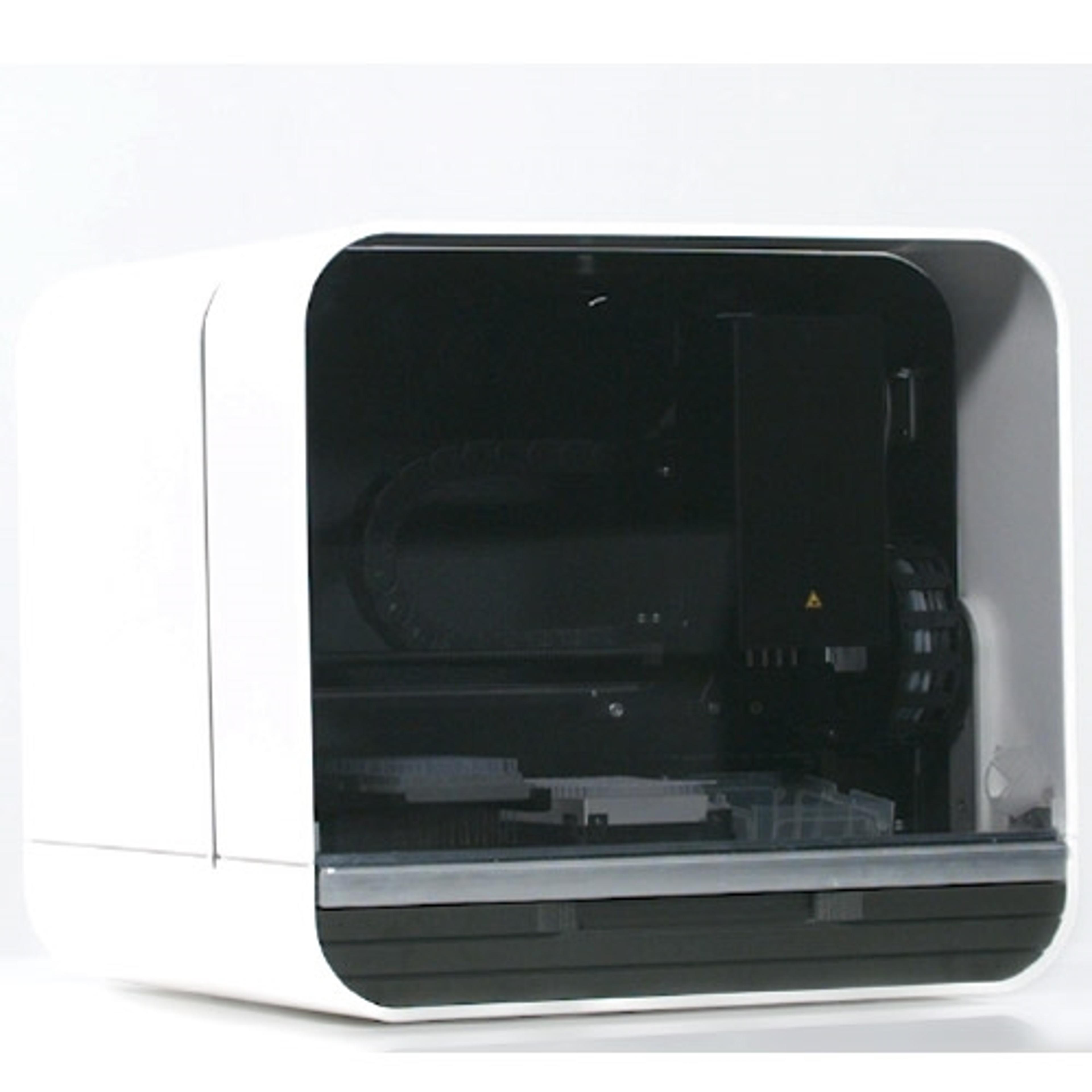KU Leuven’s Biosensors group develops first label-free assay characterizing COVID-19 antibodies directly in patient blood, using FOx BIOSYSTEMS platform
The White FOx FO-SPR instrument is designed to rapidly analyze antibody kinetic profiles against SARS-CoV-2 spike proteins in serum and whole blood from COVID-19 patients
11 Mar 2022
FOx BIOSYSTEMS, a company on the mission to revolutionize life science and pharmacological research with innovative real-time, analysis products and the Biosensors research group at KU Leuven, focused on developing innovative bio-molecular detection concepts and miniaturized analysis systems, announced a novel, label-free assay that can characterize the polyclonal antibody response against SARS-CoV-2 directly in patient bloodi.
Understanding patients’ immune status regarding previous SARS-CoV-2 exposure is crucial during the current COVID-19 pandemic. It has even been hypothesized that not just the level of antibodies, but also the binding kinetics profile, or binding rate, of these antibodies may play a role in disease severity ii,iii. Many antibody detection methods, including enzyme-linked immunosorbent assay (i.e. ELISA), require sample processing and only provide the level or amount of antibody response but not information on the binding kinetics profile.
The Biosensors group showed that fiber-optic surface plasmon resonance (FO-SPR) is an effective method to differentiate COVID-positive from COVID-negative patient samples at least as well as ELISA, but also much faster (i.e. within 30 minutes) because it can be performed directly in undiluted patient blood. More importantly, in addition to determining the level of the antibody response, this novel, label-free method was also able to assess the binding kinetics of the polyclonal antibody response against the receptor binding domain (RBD) of SARS-CoV-2 spike protein, using the White FOx FO-SPR platform from FOx BIOSYSTEMS.
Dr. Dragana Spasic, Research Manager from the Biosensors group, who led this study, commented: “The fact that our data not only determines the antibody levels in these patients, but also the corresponding binding kinetics, means that this test could be used to further study whether antibody binding kinetics play a role in COVID-19 severity. This would be a true breakthrough in our understanding of this disease.”
Filip Delport, CTO and co-founder of FOx BIOSYSTEMS said: “We are excited about this demonstration of a relevant use of FO-SPR in real world applications. Notably, the sensitivity and kinetic information of this label-free bioassay, in combination with the ability to analyze unpurified blood samples directly, provides a much shorter time-to-result of only 30 min compared to 4 hours for conventional ELISA. The affinity of these antibodies to their target should provide insight into disease progression and severity, giving it great potential for fast analysis of COVID immune status and potentially other immune-related diseases.”
References:
i Qu, J-H et al. Innovative FO-SPR Label-free Strategy for Detecting Anti-RBD Antibodies in COVID-19 Patient Serum and Whole Blood. ACS Sens. 2022, doi: 10.1021/acssensors.1c02215
ii Tang, J et al. Antibody Affinity Maturation and Plasma IgA Associate with Clinical Outcome in Hospitalized COVID-19 Patients. Nat. Commun. 2021, 12, 1221.
iii Ren, L et al. The Kinetics of Humoral Response and Its Relationship with the Disease Severity in COVID-19. Commun. Biol. 2020, 3, 780.
Want the latest science news straight to your inbox? Become a SelectScience member for free today>>

